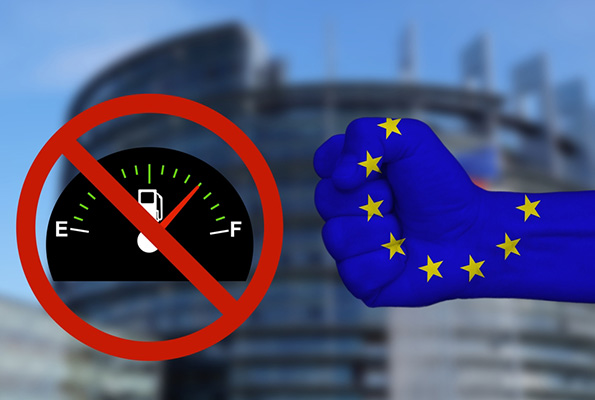In order to boost the goal of transitioning to electric vehicles (EVs), the European Parliament has approved the law to ban the sale of new fossil fuel-driven cars in the continent from 2035.
The new legislation has set the path towards zero CO2 emissions for new passenger cars and light commercial vehicles by 2035.
The European Commission will present by 2025 a methodology to assess and report data on CO2 emissions throughout the full life-cycle of cars and vans sold on the continent’s market.
“This regulation encourages the production of zero and low-emission vehicles. It contains an ambitious revision of the targets for 2030 and a zero-emission target for 2035, which is crucial to reach climate neutrality by 2050,” said Jan Huitema, a member of the European Parliament.
“Purchasing and driving zero-emission cars will become cheaper for consumers and a second-hand market will emerge more quickly. It makes sustainable driving accessible to everyone,” the Dutch politician added.
Manufacturers responsible for small production volumes in a calendar year (1,000 to 10,000 new cars or 1,000 to 22 000 new vans) may be granted a derogation until the end of 2035 (those registering less than 1 000 new vehicles per year continue to be exempt), said the European Commission.
Every two years, starting from the 2025 end, the Commission will publish a report to evaluate the progress towards zero-emission road mobility.
The law was first accepted by negotiators from European Union countries, the European Parliament and the European Commission in 2022 October.
Automakers like Volkswagen have already said to produce only electric vehicles in the continent by 2033.
Frans Timmermans, the EU’s Climate Commissioner, told dw.com, “All parts of the transport sector have to actively contribute towards reaching the bloc’s climate goals”.
“In 2050, nearly all of the vehicles on our roads have to be zero emission, our climate law requires it,” he remarked while presenting the plans in Strasbourg.
By 2050, the 27-nation bloc aspires to be fully climate neutral.
By 2030, the European Commission wants heavy vehicles to emit 45% less greenhouse gases compared to 2019 and by 2035; this tally should decrease by 65% until the target of 90% is achieved in 2040.
The proposal will now be subjected to scrutiny by EU member states and the European Parliament.
The European Automobile Manufacturers’ Association has called for a plan to plug in more charging stations and expand hydrogen filling stations on the continent.
The industry group also added that if the target of a 45% reduction by 2030 is to be met, 400,000 zero-emission trucks would have to be operational, and a minimum of 100,000 new zero-emissions trucks would have to be registered each year from 2023 onwards.
The association remarked that measures like the installation of over 50,000 publicly accessible chargers for trucks in the next seven years, with 35,000 of them being high-performance charging systems. An additional 700 hydrogen refilling stations would also be required.



